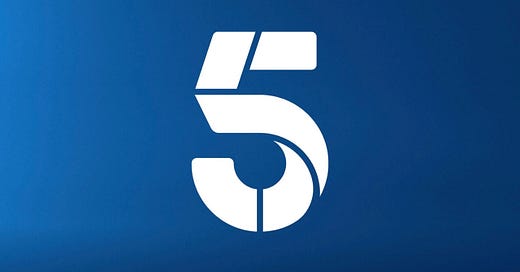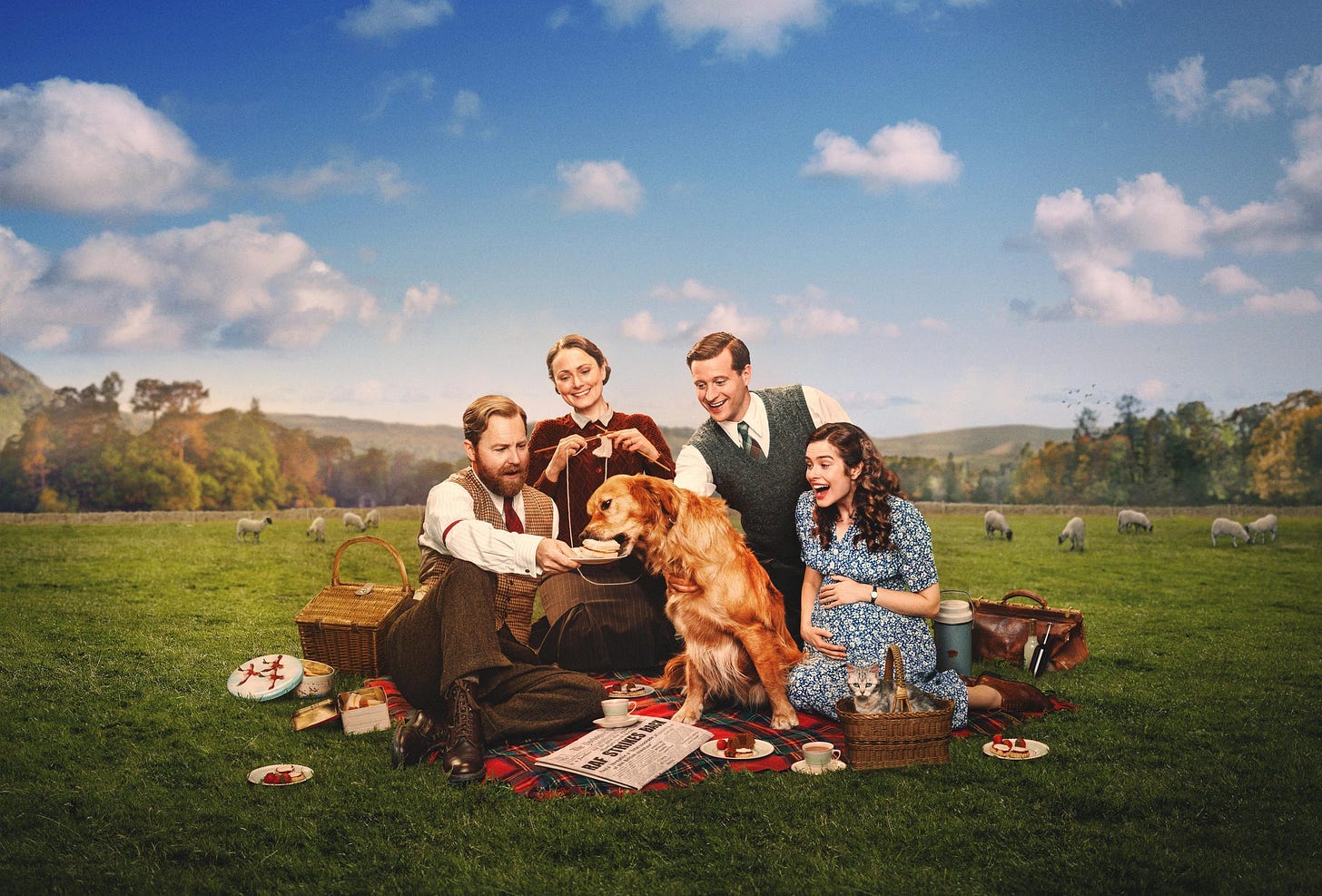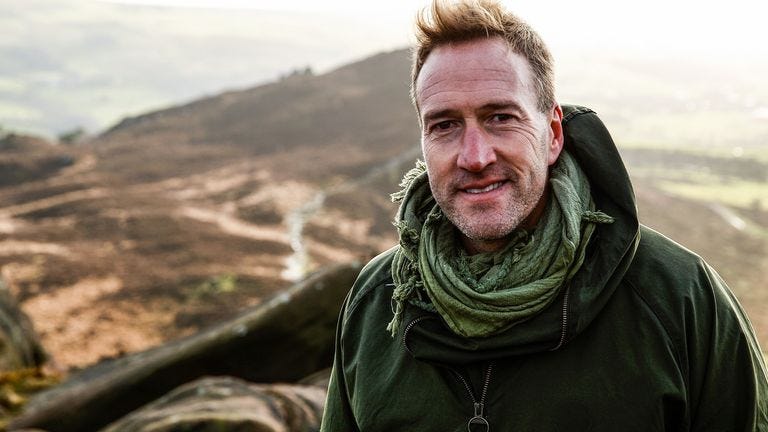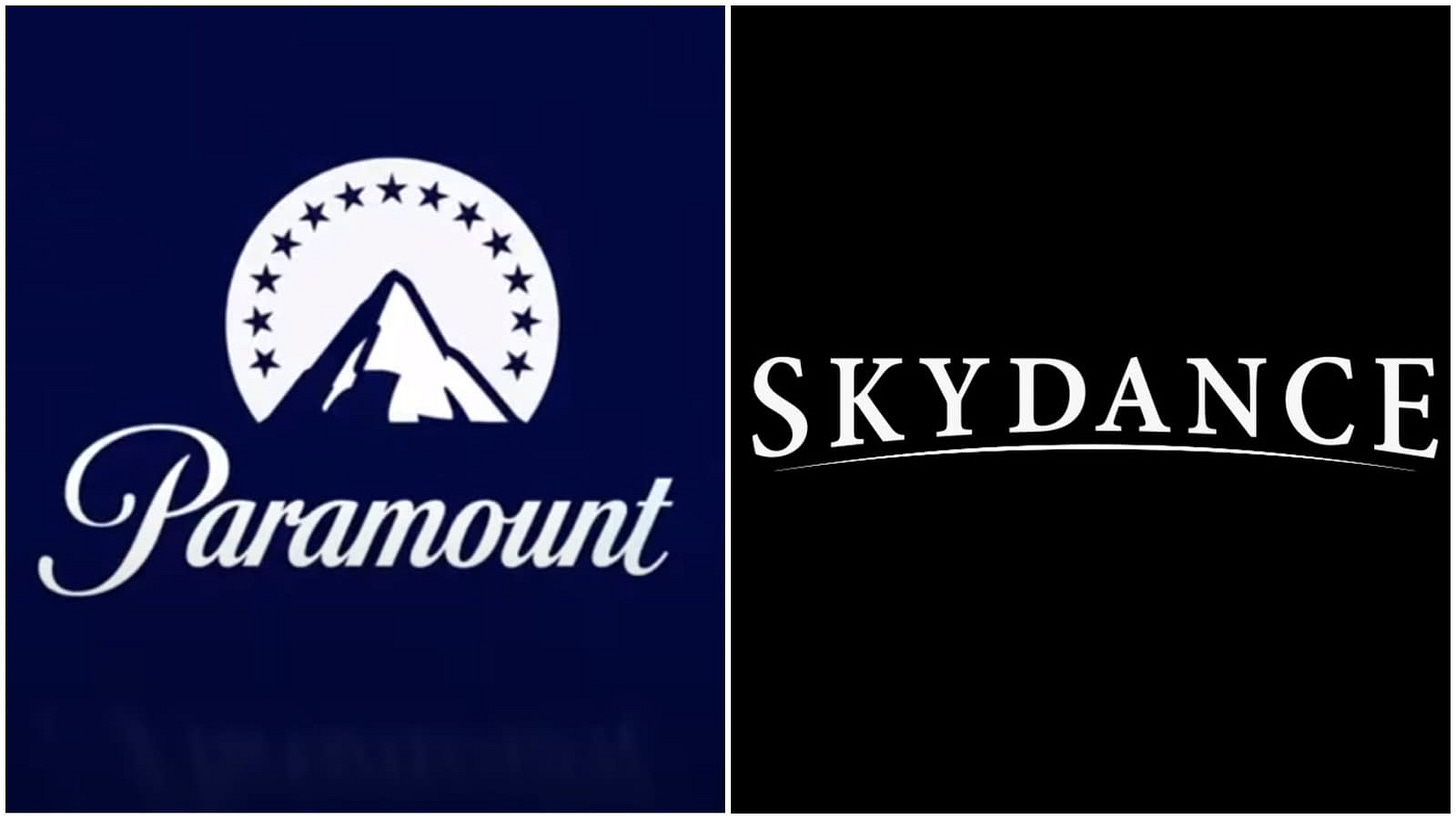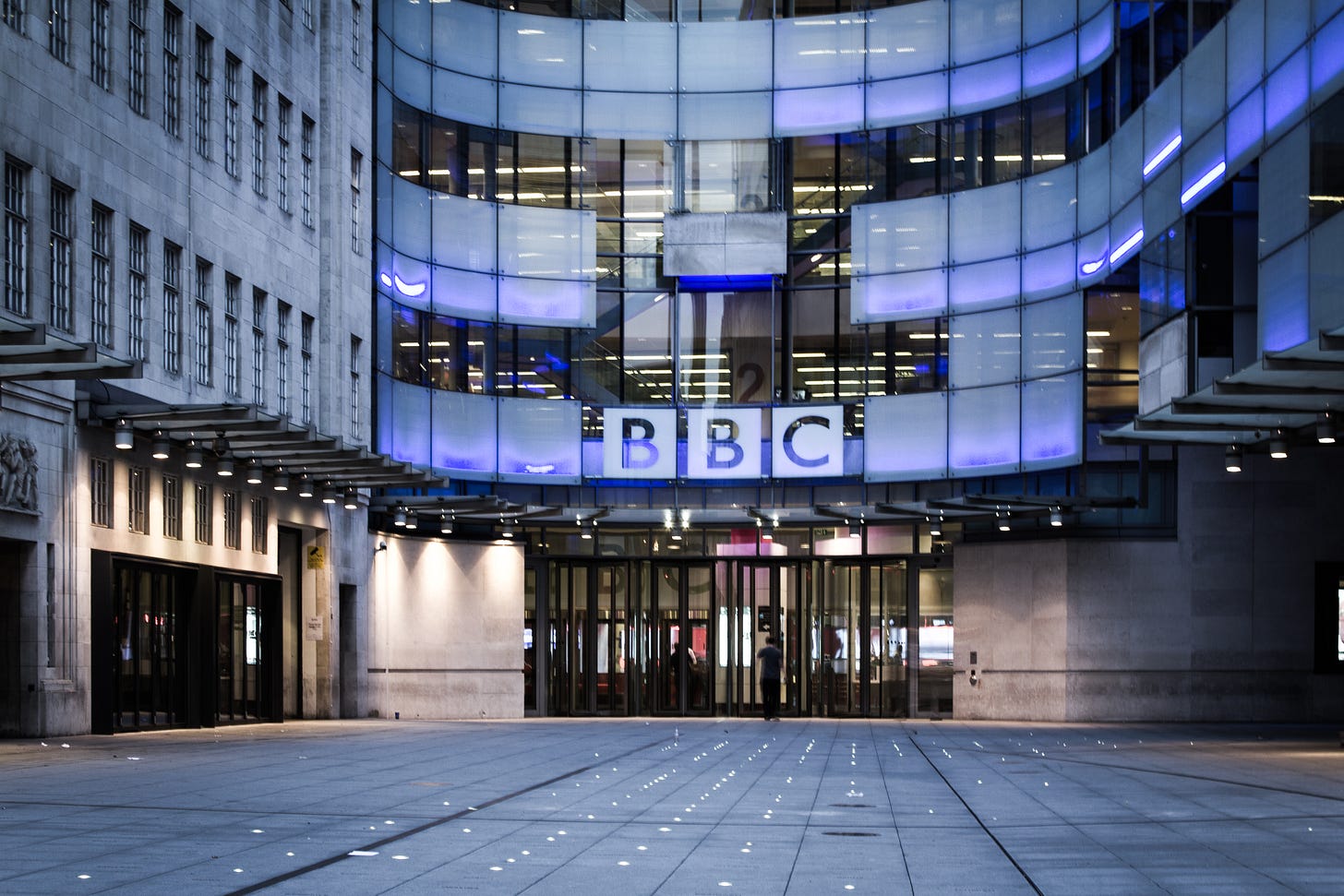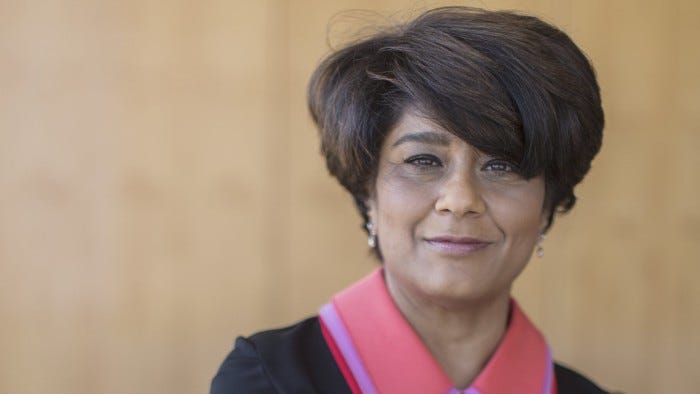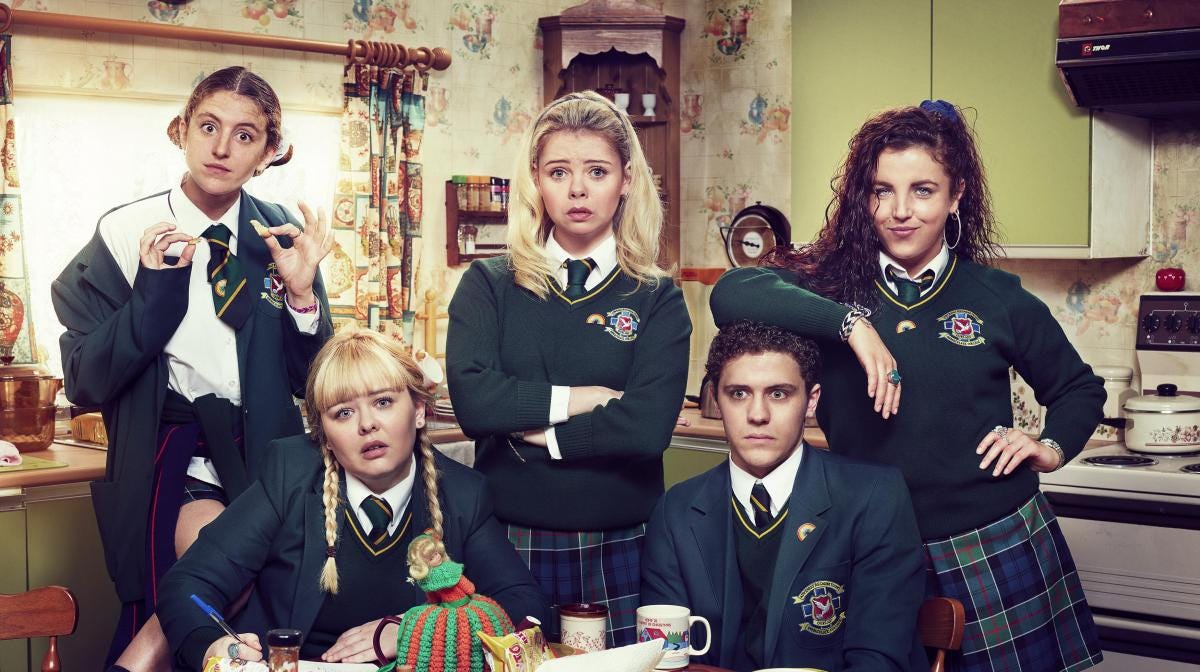Hello and welcome to ScreenPower: a free newsletter from the intersection of the UK’s screen industries, with Westminster and Whitehall.
In today’s edition:
👊 The UK’s youngest public service broadcasters will soon be owned by one of the world’s richest men. I’ve written about why we should be talking about this more.
👊 The Government appears to have changed its approach to the BBC Licence Fee - with some worrying wording for the corporation.
👊 Meanwhile a senior BBC figure says the UK risks being treated like ‘an IP farm’.
👊 An ITV sale could be on the cards again with interesting questions for the Government.
👊 DCMS have appointed a new senior advisor on the creative industries.
👊 And Lisa Nandy reveals her favourite TV show ‘in the world’.
We need to talk about Channel 5
Channel 5 is being sold - but no one is talking about it.
Come again: One of Britain’s public service broadcasters will soon be owned by the world’s second richest man, and so far this has received next to no public or political attention.
In a parallel universe: Just consider if it was being sold to the world’s richest man (car salesman and government efficiency enthusiast Elon Musk) - you can bet there would be discussion about that.
Let me be clear: I’m not saying there is anything wrong with the proposed deal (more on that below) - but I am saying that it’s worthy of discussion and scrutiny.
Why is this important: Because Channel 5 has enjoyed something of a creative renaissance in recent years - and it now feels like a valued part of the UK broadcast landscape.
Take me back: In its early days, Channel 5 was known for reliably giving audiences the three f’s: ‘football, films and f***ing’ (in the words of former C5 boss Dawn Airey). Skip forward a few decades, a couple of changes in ownership, and some technological shifts that mean there’s now a lot more choice in the provision of those f-words - and Channel 5 has moved on. It’s carved itself a new cultural identity - one that feels very PSB, while also being different to any of its peers.
Creative genius: Under the guiding hand of creative content chief Ben Frow, Channel 5 has evolved from sport and soft porn to something altogether warmer, and more British. There’s a sort of ‘isn’t Britain lovely’ feel to parts of the peak time schedule now - and you’re more likely to find yourself watching vets in the Yorkshire Dales, a cosy drama, or aerial shots of stately homes - than something x-rated. Sure you’ll have seen elements of this softer focus schedule on other channels - but in aggregate, Channel 5 is unique.
The kids are alright: Especially in the mornings, when the channel broadcasts three hours of children’s TV - a lot of it British - something you won’t find on linear channels 1 to 4. Apart from anything else, this is an important platform for a struggling genre.
Here for Ben Fogle and hot vets: And as C5’s cultural identity has changed, so has its audience. It now attracts a slightly older and more regional audience than other PSBs, according to the channel’s boss Sarah Rose.
Less metro: Rose is an impressive (if under the radar) figure in the UK media. She has spent her career in public service broadcasting, previously working at ITV and Channel 4. She told the Voice of the Listener and Viewer (VLV) conference last week that C5’s audience is now “much more regional” and is “much less of a metropolitan broadcaster than its peers”.
Buy British: Rose credits this in part to C5’s strategy of investing in more British content. “80% of our peak time schedule is UK originations”, she told VLV. “We have moved away from acquisitions rather than to them - and the reason we’ve done that is because we know British audiences want to see British content”.
Give me the facts: Historically, C5 has majored on factual programming - and while there’s more of a balance with scripted content these days, factual is still a big part of the schedule. “We try and show Britain back at itself”, explains Rose, “we try to reflect the everyday, and we try to tell stories that need to be told.”
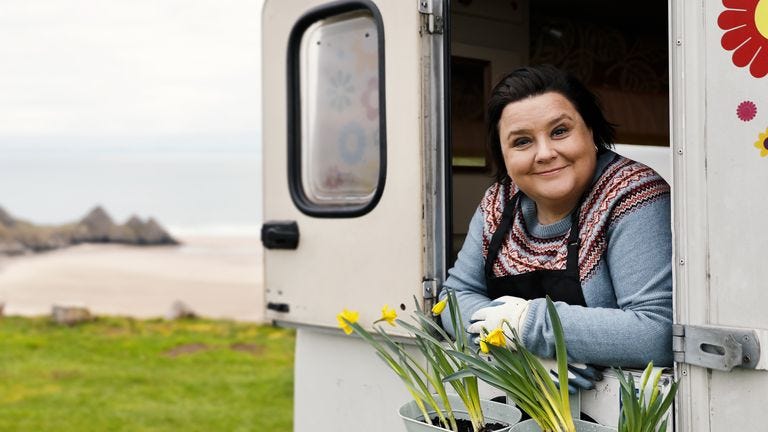
Ok but what’s the point here: The point here is that even if you don’t watch it yourself, Channel 5 is worth caring about - and protecting. So if it’s changing hands, we should be asking who’s buying it, and what they plan to do with it.
Which brings us to the takeover.
So what is actually going on with that? Channel 5 is currently owned by US media giant Paramount Global - which is in the midst of a transaction that will see it effectively bought by production company Skydance Media and US investment firm Redbird Capital Partners.
So who will be in charge? David Ellison, the founder of Skydance will become Chairman and CEO of the new company. But it’s a complicated deal - and if you fly above the clouds of Redbird and Skydance you’ll see that the person with the majority stake (according to regulatory filings) will actually be David’s dad, Larry Ellison.
Who’s Larry Ellison? One of the world’s richest men. Second, according to Forbes at time of writing - third or fourth if you believe others. He’s a US entrepreneur, philanthropist, political donor - and co-founder of software giant Oracle.
Why does ownership matter for Channel 5 anyway? It’s a fair question. From the point of view of protecting a valued public service broadcaster, there are legal and regulatory guardrails in place. But public service broadcasting is about more than just a set of rules. Its success relies on talented people who want to run successful channels and platforms that add value to Britain’s broadcast landscape. Broadcast bosses can choose maximise or minimise the public service element and the requirements put on them by government (it’s one of the reasons Channel 4 privatisation always gets so much attention).
Voicing concerns: While no one seems to be talking publicly about C5’s future, some concerns are already being expressed privately. A former senior exec at the channel told me they were “almost certain” that Channel 5’s new owners would sell it again before long. And a senior policymaker I spoke to expressed concern that under new ownership, Channel 5 could be forced to move away from the style and identity its found in recent years - putting its place in the PSB landscape at risk.
Worryingly… There’s been talk of big cuts as part of the deal ($2bn worth) - and Paramount have already started scaling back some of their linear TV operations.
So what role can Westminster play? There is a formal process set out in law that gives the Government an opportunity to scrutinise media mergers, should it wish to do so. Under the Enterprise Act 2002, the DCMS Secretary of State has the power to kick off a quasi-judicial process to examine a merger, if she has concerns around plurality. In this case, the SoS would issue a ‘public interest intervention notice’ instructing Ofcom to look into it and produce a report. Ofcom can also advise on whether the prospective owner is ‘fit and proper’.
Debate: But aside from the legal (or quasi legal) process, C5 deserves more discussion and debate - so there could also be a role for Parliament - perhaps via the Culture, Media and Sport Select Committee, or the Lords Communication Committee, to hear views.
So why is nobody talking about the takeover then? There are likely some good reasons it’s had little attention. First, the deal is quite complex. Second, it’s yet to be completed, and Channel 5 themselves are prevented by US law from talking about the transaction with Skydance until it’s complete.
But it’s deeper than that: I can’t remember the last time I heard a DCMS Minister name-check a Channel 5 show as one of their favourites. Why does Channel 5 get less attention - corporately - than its peers?
Ask the boss: I put that question to Sarah Rose, and she told me she thought it may partly be C5’s fault. “I think some of that is on us”, she explained. “I don’t think we’ve been noisy enough about what we’re up to…We need to be confident about what we’re doing, and we have to project that better than we’ve done to date…But Channel 5 is always going to be the ‘also ran’ alongside [the BBC, ITV and C4], and we’re sort of ok with that”.
Transformed: The success of Channel 5’s transformation has been to make it a mainstream British broadcaster - and as Sarah Rose says, “it’s a very different channel these days”.
Indeed it is - it’s a national asset - so let’s not shy away from conversations about its future. 🙏
(PS: I highly recommend the VLV’s events if you’re at all interested in this space. It’s one of the few independent voices in this space that is free from corporate interests - and like a good PSB, it punches well above its weight. You can check out their future events here).
The Government’s change of mind on the Licence Fee
I’m old enough to remember when the Prime Minister promised to keep the licence fee - five whole months ago.
100% committed: Sir Keir Starmer, just a week into office in July this year, told reporters “we are committed in our manifesto to the BBC and to the licensing scheme…there’s going to be some more thought between now and [2027], but we are committed.”
Ok maybe like 60%: TBF five months is a long time in politics, so maybe it’s not surprising that the line has now changed to “the Government is keeping an open mind about the future of the licence fee.”
This was revealed in a written statement to Parliament last Friday by Culture Secretary Lisa Nandy - published with little fanfare.
Other things to note from the statement:
The BBC Licence Fee will rise by £5 next year to £174.50 - a 2.9% increase. This is expected to provide around £75m extra funding for the BBC (and Welsh language S4C, which also receives Licence Fee money).
The Government will now address the issue of the BBC’s funding as part of its Charter Renewal - a process to review and refresh the Corporation’s ten year licence to operate.
This also means that DCMS are ditching the ‘BBC Funding Model Review’ set up by the Conservative Government pre-election - and the expert panel they set up to support the review (which was a mixture of the great and good, and political appointees).
DCMS are expanding the ‘Simple Payment Plan’, which supports people who are struggling to pay the Licence Fee.
The Culture Secretary is promising broad engagement as part of the Charter Renewal process. As well as working closely with the BBC, DCMS will “engage with other broadcasters, stakeholders across the creative industries as well as the British public to inform our thinking”.
This all sounds fine. But there’s something worrying in the statement that could spell trouble for the BBC.
🚨 In relation to funding, Nandy says “the Government will be taking forward this issue [of the licence fee] as part of the Charter Review process, since what the BBC does and its future role is fundamentally influenced by how it is funded.”
What?! Surely it should be the reverse? How the BBC is funded should be influenced by what the BBC does and its future role. If the Government is going to engage properly in this ten-yearly exercise, it should use it as an opportunity to think about what it wants the BBC to do and to be - first - and then work out how to pay for it.
Government appoint senior advisor on creative industries
Baroness Shriti Vadera - a former Minister in the Brown Government - has been appointed by DCMS to co-chair the Creative Industries Council (CIC).
The CIC is the body that brings key parts of the creative industries together with Government. This will be an important role - especially over the next six months - as the CIC works with Government to develop the Creative Industry Sector Plan that will be delivered alongside the Spending Review in late summer 2025.
Vadera is currently Chair of the Royal Shakespeare Company and Prudential Plc. She’s a respected figure in financial services, having also been Chair of Santander UK.
She will serve alongside current co-chair Sir Peter Bazalgette until he steps down next summer.
Sir Peter - or Baz - has been a popular industry Chair of the CIC. He has a huge amount of industry experience and instinctively ‘gets it’ - so these will be big shoes to fill.
Other stuff you may have missed…
📊 ITV sale also on the cards? According to Sky’s Mark Kleinman “potential suitors have again begun circling ITV…after a prolonged period of share price weakness and renewed questions about its long-term strategic destiny.” One of the companies Kleinman says is interested is All3Media, owned by Redbird IMI. If that were seriously on the cards, it could pose an interesting conundrum for the Government - because Rebird IMI (a joint venture between Redbird Capital - mentioned above re Channel 5 - and a fund backed by the UAE’s vice president) had their bid to buy the Telegraph and the Spectator last year scuppered amid a lively debate about press freedom (fuelled largely by rival buyers). The previous Government positioned itself firmly against the proposed sale to Redbird IMI, even changing the law to prevent ‘state owned investors’ from owning significant stakes in British newspapers or news magazines (but not broadcasters).
🎙️ UK risks becoming an ‘IP farm’, according to BBC Chair: Coverage of BBC Chair Samir Shah’s speech last month in Leeds focused on his call for the BBC Charter renewal processes to be replaced with something more permanent. More interesting to me though were his comments about the UK’s role in relation to overseas screen sector investment. Highlighting the difference in skills spend between the BBC and Netflix (according to Shah, Netflix spend 0.2% of their commissioning budget on skills, compared to 1% for the BBC), he said “I want to safeguard against the UK being treated as an IP farm where you can simply harvest our top talent without helping meaningfully to future-proof our creative sector.” Punchy stuff - which should be interesting to CMS Chair Dame Caroline Dinenage who has a particular interest in skills. Shah also said PSBs face an existential threat: “Action is now needed to future-proof PSBs in the digital age, otherwise our very British success story will be part of our halcyon past.” 😬
🏛️ Shadow DCMS team confirmed: Now the dust has settled from their leadership race, the Conservatives have confirmed their full shadow DCMS team: Stuart Andrew MP (Shadow Sec of State), Saqib Bhatti MP, Louie French MP, Lord Parkinson of Whitley Bay (who served as a DCMS Minister for nearly three years until the election), and Joe Robertson MP (as PPS).
💻 Digital exclusion: Media Minister Stephanie Peacock has launched an expert panel (with proper experts, not one of those crony ones) to look at the future of linear TV - after a report revealed that over a million households are at risk of being excluded from the shift to digital TV consumption. This is one of those things that sounds really dry - but actually is pretty important to the long term future of British telly as we recognise it today.
📺 What the Culture Secretary is watching: Lisa Nandy last week revealed her “favourite TV show in the world”. Channel 4’s Derry Girls - the sitcom written and created by Lisa McGee and set in Northern Ireland - is no1 for Nandy. Interestingly it was also a favourite for one of her predecessors at DCMS, Nadine Dorries. You can currently watch Derry Girls on Channel 4 and on Netflix.
☎️ Get in touch
Thank you for reading ScreenPower! As ever, do get in touch with any comments or questions on the topics covered in this issue, either by replying to this email or by connecting on LinkedIn.
You can read previous editions of ScreenPower here.
And if you’ve been forwarded this email and found it useful, then do subscribe below - it’s free!


